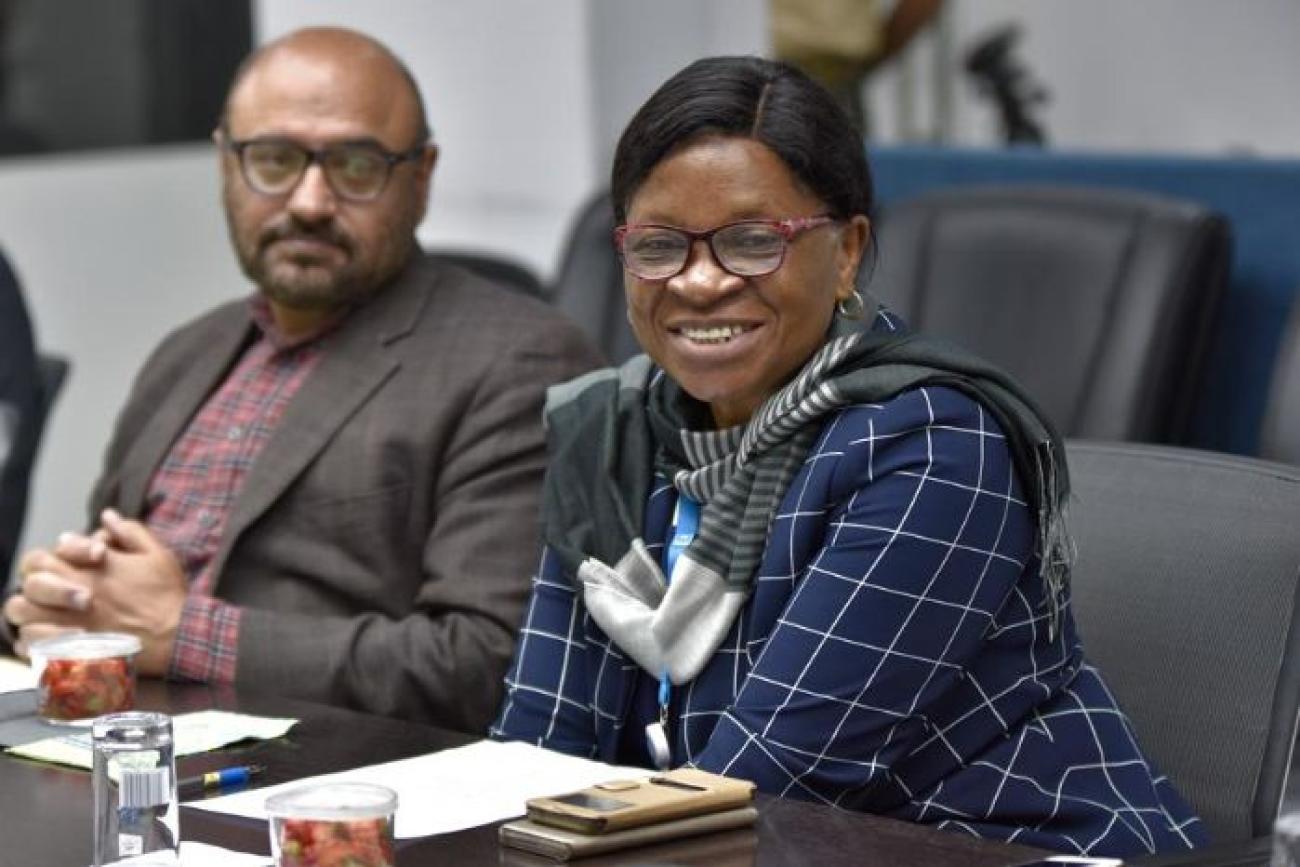From Inspiration to Action: I Believe in Volunteers

It was especially heartwarming to see my work being recognized while knowing I was making the contributions my sister always believed I would make.
My journey as a UN Volunteer started with a recommendation from a friend. At the time, I had practiced medicine in my home country, Cameroon, for over 20 years. A close friend advised me to join the United Nations Volunteers (UNV) programme as a way to expand my experience in medicine, while traveling and volunteering in service of others. My recollection of my sister’s illness made me decide right away that this was right for me.
When I was younger, my sister developed a medical condition. She underwent two heart surgical procedures and endured a lot of suffering, but she survived and inspired me. She later asked me to consider a career in medicine to help other young girls. When this volunteering opportunity came up, I took it and became a UN Volunteer on 27 March 2008.
I was recruited for the first volunteer assignment in Haiti. As a mother of a seven year-old twins, it was not easy for me to travel and leave them behind. But I did it with the support of my husband, who understood my motives and took good care of our children while I was deployed overseas.
I am sharing my experience to encourage other women, especially mothers, to not pass on such opportunities. I understand their role as caregivers. I hope learning about how I volunteered, and balanced between my work and family, will make them more confident that they can do it too.
While in Haiti, I practiced medicine amidst floods, cholera, earthquakes and a severe economic recession. These harsh conditions damaged roads and threatened the supply of food and other resources to affected communities.
My volunteering journey with the UN took me next to support the Ebola response in Africa, amidst lockdowns and a profound public health crisis, which garnered the world's concern.
Through these emergency and disaster relief contexts, I became involved in inpatient and outpatient services, medical evacuations, capacity building, prevention and disease mitigation activities.
It was especially heartwarming to see my work being recognized while knowing I was making the contributions my sister always believed I would make. Serving with UNV prepared me in ways that I couldn't have imagined.
These experiences were wide-ranging and led my career growth within the UN. I eventually transitioned from a UN Volunteer Medical Officer to become the Health Manager of the UN Clinic administered by the United Nations Development Programme (UNDP), first in Somalia, then in Yemen, which is a lead medical position in the field.
When COVID-19 hit the globe, I was in Yemen. Indeed, I was the one of the first female doctors to join the UN Clinic medical team in Yemen. Like my home country Cameroon, Yemen desperately needs to increase the number of doctors and nurses to improve health conditions and address humanitarian needs.
My previous experience allowed me to understand both the significant role women can play in this regard and the value UN Volunteers can add in such contexts. I moved quickly to recruit, deploy and train national UN Volunteers in our UN Clinics. All while ensuring inclusion of women in the deployments, coupled with flexible schedules and remote work opportunities which promote work-life balance.
Ultimately, our work in Yemen benefited significantly from the contribution of the recruited national UN Volunteer health professionals.
As I travel between clinics to attend to patients and help building staff capacity, I often think of my sister and how she inspired me. I also think about my children and how my own journey would inspire them.
At first, my children didn't want to study medicine. While in Cameroon, they saw me work long hours and weekends then come home tired. They struggled to embrace the career that demanded a lot of their mother's time. However, my children began to view medicine differently after I joined UNV. They began to understand how important doctors are to crisis-affected communities and now see themselves in the lives we save. This is everything to me.


